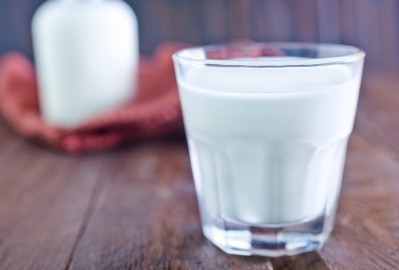Denmark backs vitamin D fortification

The Danish Veterinary and Food Administration (DVFA) has for some time been recommending greater vitamin D fortification of the food supply to boost intakes of the ‘sun vitamin’ in sunlight-shy Denmark, and announced recently that milk companies had begun to take up the challenge.
A DVFA spokesperson confirmed Arla was one dairy company that had put fortified vitamin D milks on shelves and there was at least one other, but an Arla spokesperson was not available for further comment at the time of publication.
Traditionally it has just been margarines that have acted as a format for vitamin D fortification in Denmark, while other Scandinavian countries like Finland and Sweden have been more proactive in fortifying other foodstuffs with vitamin D.
Protect the vulnerable
“The invitation is intended to protect the large populations that rarely get enough the vital vitamin D through natural means,” the DVFA said recently.
“Enrichment of one or more food groups will have a positive effect on the population groups that do not follow the official advice on diet and sunlight and in particular, the special risk groups who do not follow the advice to supplement their diet with a daily vitamin D supplements.
The agency recommends people eat between 200 and 300 grams of fish a week and gain sun on face, feet and forearms for 5-30 minutes several times a week during the summer.
For those who do not meet these targets it recommends groups like children, the dark-skinned and pregnant women consume 400IU of vitamin D per day via fortified foods and supplements.
High-risk groups like the over-70s and those with a disposition to osteoporosis are recommended to consume double that.
The scientific D-bate
Once vitamin D, the sun vitamin (the body generates it in the presence of sunlight), was best known for supporting calcium in supporting bone health. Not so anymore. Studies linking the vitamin with muscular support, immune benefits, cancer reduction, insulin response, and gut health have changed the D landscape.
The quality of science has been recognised in the form of positive health claim opinions for immunity and muscular function from the notoriously tough European Food Safety Authority (EFSA), but in terms of dosage levels at least, there is growing frustration that the governing rules are not keeping pace with the science.
Typical recommended daily intakes (RDIs) lie between 200 and 600 international units (IU) per day while more and more science shows the above benefits can be better achieved with levels closer to 2000IU per day without safety concerns.
Some go much higher. One European study found daily doses between 2000-3000IUs could reduce EU health care expenditures by €187bn each year in 17 countries.
Such a situation prompted Frost and Sullivan to observe in a recent report: “Regulatory standards are undoubtedly the primary factor holding back the potential boom of vitamin D market.”
EU collaboration
Last month, leading vitamin D researcher, Heike Bischoff-Ferrari, PhD, the director of the Centre on Aging and Mobility at the University of Zurich followed an industry and academia-led ‘call to action’ over micronutrient deficiencies, by asserting the need for EU-funded vitamin D research.
“The problem is vitamin D has limited Intellectual Property (IP) potential, it is a pure public health intervention,” Bischoff-Ferrari told NutraIngredients.. “There needs to be more double blind, randomised clinical trials but we lack these because it is difficult to gain corporate interest.”
Hopes are being pinned to the 7th European Commission Framework which funds research and technological development projects.






